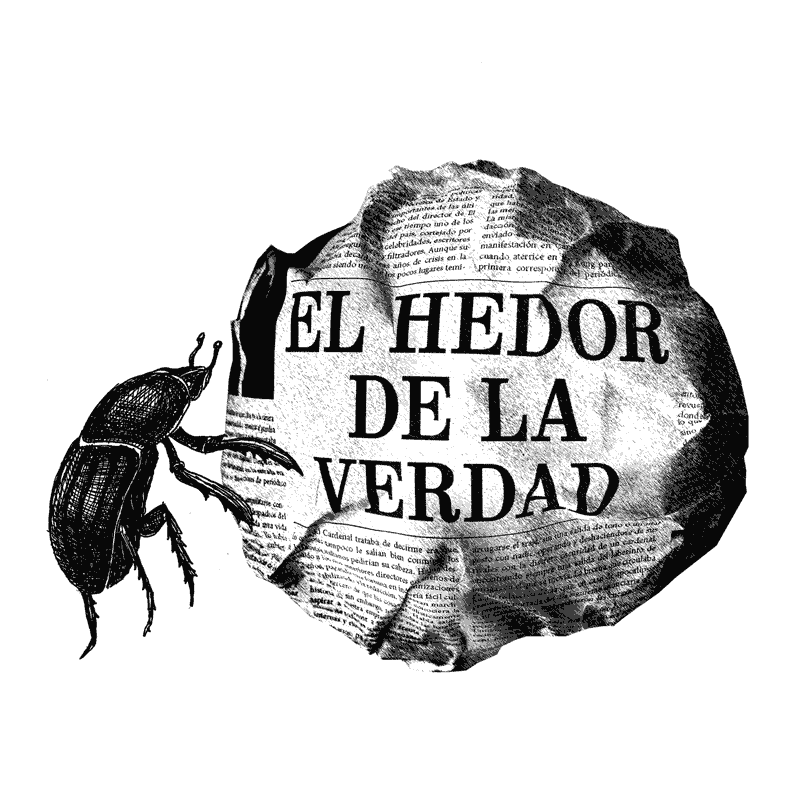INTERVIEW WITH DAVID JIMENEZ
For over two decades, Spanish journalist and author David Jimenez worked as an international correspondent covering conflicts, disasters and major events in Asia. In May of 2015, he returned to Madrid as the editor-in-chief of El Mundo newspaper, but soon found himself in a battle of his own to free journalism from the clutches of the political and economic establishment. His dismissal from his post in 2016 prompted him to write his controversial memoir El Director (The Editor).
An instant bestseller, El Director details how he fought to defend the newspaper from political and business interests and exposes the corruption, manipulation and unethical practices of mainstream media in the process. We recently sat down with him to discuss the ideas that shaped both its title and cover design.
“Lies travel faster and
than the truth.”
― David Jimenez
You struggled to find the right title for your book – as do many authors. Why are titles so difficult to get right and what recipe worked for you?
David: “We all try to be original, looking for that brilliant title. A simple, obvious title may sound too straightforward, plain, but it may actually be the most original one. You will have a hard time to find books with two-word titles published both in English and Spanish, particularly journalism-related. Longer and elaborated titles would say less than ‘El Director’, a short, direct and concise way to summarise the book. When I think about it, I find it impossible to imagine another title.”
‘El Director’ was your first choice, but you kept trying other titles for months. Why was this?
David: “This title was first suggested to me by filmmaker and video journalist Raúl Gallego, a good friend of mine. But at that very moment, I dismissed it right away for sounding too obvious. Many months later, I remember discussing the title choice with my editor a few days before going to press, both quite stressed, until I suddenly said ‘El Director!’ Sometimes you have something stored in the drawer of your brain that opens up at the most unexpected time.”
In your first brief you sent our cover cooks a list of tentative titles. ‘El Circo de la Verdad’ (The Circus of the Truth) was your favorite. How did this title connect to your book and why did you finally dismiss it?
David: “We went through so many covers. The elephant seemed to me so representative of my story that I was willing to sacrifice the title to adapt it to this cover design, instead of the other way around. It’s true that the media can be a circus, where nothing is what seems and all the manipulation, but, ‘The Circus of the Truth’ was a convoluted and generic title, and I was close to making a mistake with this choice. I like to partly attribute the success of the book to me as an author, and to my great editor, Emilio Mediavilla from Libros del KO and his team, but I think that the chosen title and the cover were key.”
Authors usually choose their designer when self-publishing. However, you insisted on working with Coverkitchen with your publisher. Why was that and how was the experience of working directly with designers as opposed to liaising with a publisher?
David: “I think Coverkitchen takes more creative risks than most publishers. My book cover design creation really needed someone with the patience of your team; someone creative who is willing to do and undo the work along the process, and that is very difficult to find. The fact that you are all perfectionists makes better covers. There was a moment in which I was feeling even guilty about wearing your team down. Now, when I look at the cover design, the title, the mask, I think “this is it”, I can’t imagine any other possible cover.”
You are now working on a novel based on your personal experience as a foreign correspondent. What motivates you to keep writing?
David: “I am a storyteller. There is not much else I can do. I can’t even cook a Spanish omelette or hang a picture on the wall! So I guess that is a big reason for keeping at it. When I was a reporter, and I had a great story with me, I felt uneasy until I got it out of my system. And with my books it’s the same. I have all these experiences, fed by more than 20 years as a correspondent, and I feel the need to share them. Some of them, I like to think, are relevant in the sense that they explain the human condition; our fears, achievements, and failures. I even have this idealist and naïve hope that sometimes an article or a book will help make things a little bit better. Of course, that is a long shot. But I need to think that to be able to write.”





